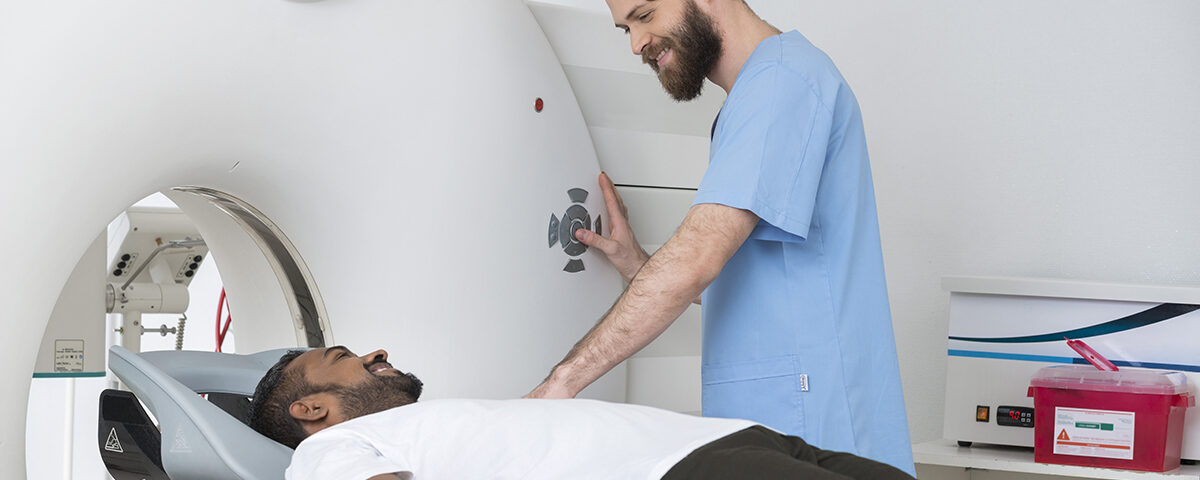
Should I stay or should I go?
March 23, 2023
Now Enrolling: ComboMATCH treatment trial E4 is testing a new option for patients with advanced solid tumors that progress despite taxane chemotherapy
July 19, 2023A closer look at ECOG-ACRIN’s men’s cancer trials

In recognition of Men’s Health Month in June, we are featuring several trials led by researchers with the ECOG-ACRIN Cancer Research Group (ECOG-ACRIN). These trials have the potential to improve treatment for men with certain types of prostate or penile cancer.
In the United States, prostate cancer is the most common cancer in men, other than skin cancer. The American Cancer Society estimates that about one in every eight men will be diagnosed with prostate cancer during his lifetime. As for cancer of the penis, it is so rare that doctors do not have very much evidence from clinical trials to guide treatment decisions.
Below, we highlight an international trial for penile cancer and three ECOG-ACRIN-led prostate cancer studies.
Imaging newly diagnosed prostate cancer to select the right treatment
The EA8171 trial is testing whether a new type of magnetic resonance imaging (MRI) technology is better than traditional MRI for measuring the stage of disease in patients with newly diagnosed prostate cancer. A better imaging technique may help physicians more accurately identify which patients have fast-growing, aggressive disease that requires immediate treatment—or those who have slow-growing cancer that can be monitored through active surveillance. Many groups have raised concerns about the over-treatment of prostate cancer. There are risks associated with radical surgeries, as well as the risk of erectile, bowel, and bladder dysfunction associated with radiation therapy. This trial will assess the performance of the new technology (multiparametric MRI) as a tool to help guide treatment decisions for patients in the future.
This phase 2 trial aims to enroll 852 patients.
The lead researcher for this trial is Clare Tempany, MD, of Brigham and Women’s Hospital.
Learn more about EA8171 on ecog-acrin.org.
Reducing the risk of progression in slow-growing prostate cancer
Sometimes, the best approach for managing early prostate cancer is no immediate treatment. This is because it may be so slow-growing that it does not warrant immediate or aggressive treatment. Instead, doctors recommend active surveillance, in which a patient regularly visits their doctor to monitor their cancer. The EA8184 trial is studying the effects and safety of a promising addition to active surveillance: taking daily green tea extract pills to slow the growth of cancer even further. In Asian countries, where tea is extensively consumed as a beverage, the death rates from prostate cancer are among the lowest in the world. This and other observations led ECOG-ACRIN researchers to investigate whether the antioxidants found in green tea, called catechins (pronounced KA'-teh-kins), may prevent the growth of prostate cancer.
This phase 2 trial aims to enroll 360 patients.
The lead researcher for this trial is Nagi B. Kumar, MD, of Moffitt Cancer Center.
Learn more about EA8184 at ecog-acrin.org.
Personalizing treatment for recurrent prostate cancer
The standard treatment for prostate cancer that comes back after surgery to remove the prostate is radiation to the pelvis area and lymph nodes, plus 6 months of androgen deprivation therapy (ADT). ADT is a type of hormone therapy. The EA8191/INDICATE trial is investigating whether PET scans may help doctors know when to increase therapy in patients where there is a proven benefit, while sparing others from harmful side effects if they are unlikely to benefit from an intense treatment. This trial has two parts. Participants with a PET scan showing no cancer outside the pelvis will be assigned randomly to receive standard radiation and ADT with or without a second hormone treatment. Patients with a PET scan showing cancer has spread beyond the pelvis will be assigned randomly to receive a more intense treatment regimen: radiation and both hormone treatments with or without a second round of radiation therapy.
This phase 3 trial aims to enroll 804 patients.
The lead researcher for this trial is Neha Vapiwala, MD, of the University of Pennsylvania.
Learn more about EA8191/INDICATE at ecog-acrin.org.
Treating patients with advanced penile cancer
The International Penile Advanced Cancer Trial (EA8134/InPACT) is for patients with cancer of the penis that has spread to nearby tissue or lymph nodes (locally advanced). The trial is looking at several questions that routinely come up when doctors are planning treatment. Patients will be assigned randomly to receive one of three initial treatments: 1) standard surgery to remove the nearby tissue or lymph nodes in the groin area, 2) chemotherapy followed by standard surgery, or 3) chemotherapy and radiation therapy together, followed by standard surgery. Patients at high risk of relapse will be eligible to continue treatment in a second part of the trial.
This phase 2 trial aims to enroll 200 patients.
InPACT is co-led by ECOG-ACRIN researchers in the United States and the Institute of Cancer Research in the United Kingdom.
The lead researcher for this trial in the United States is Curtis A. Pettaway, MD, of MD Anderson Cancer Center.
Learn more about EA8134/InPACT on ecog-acrin.org.

